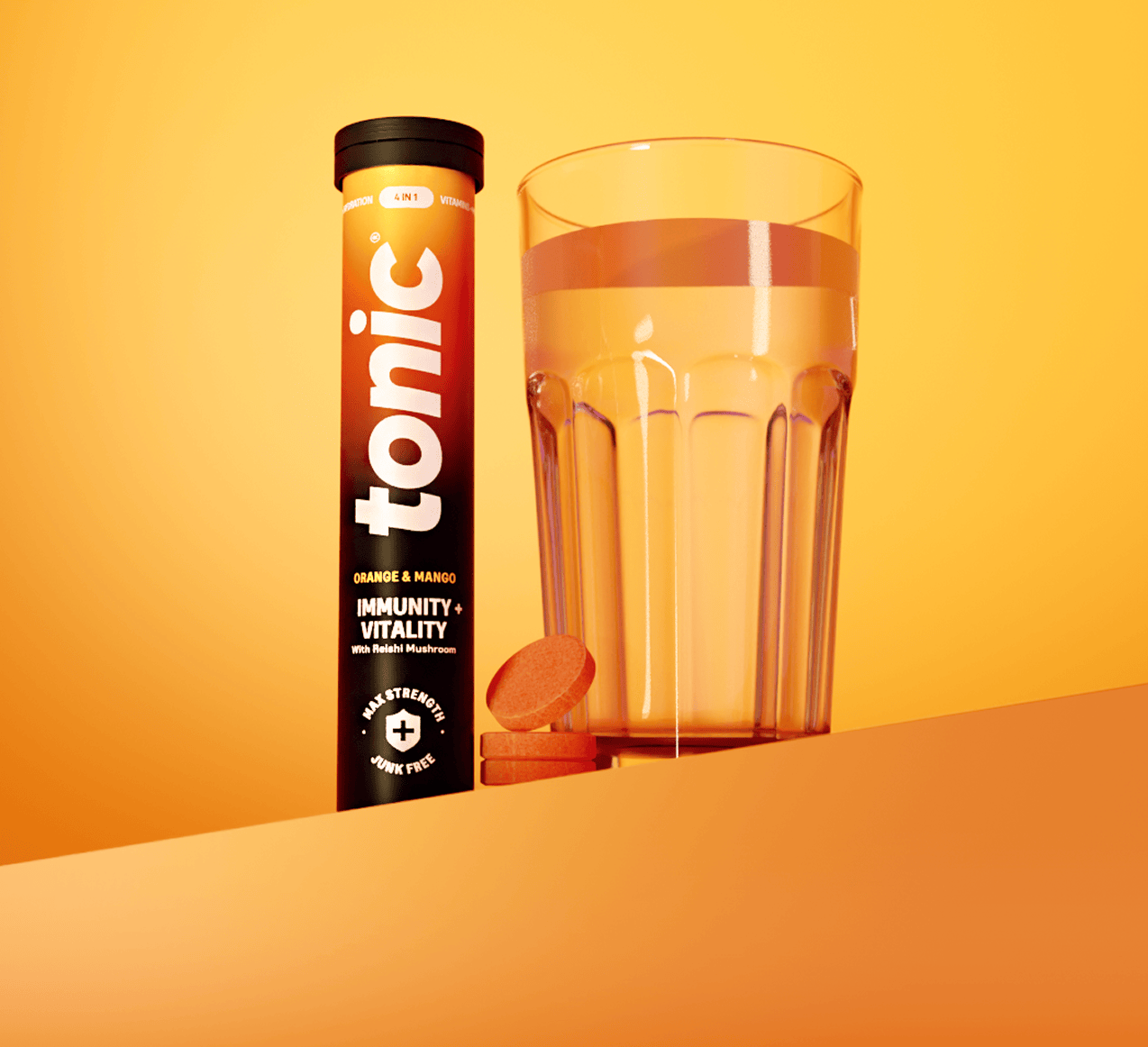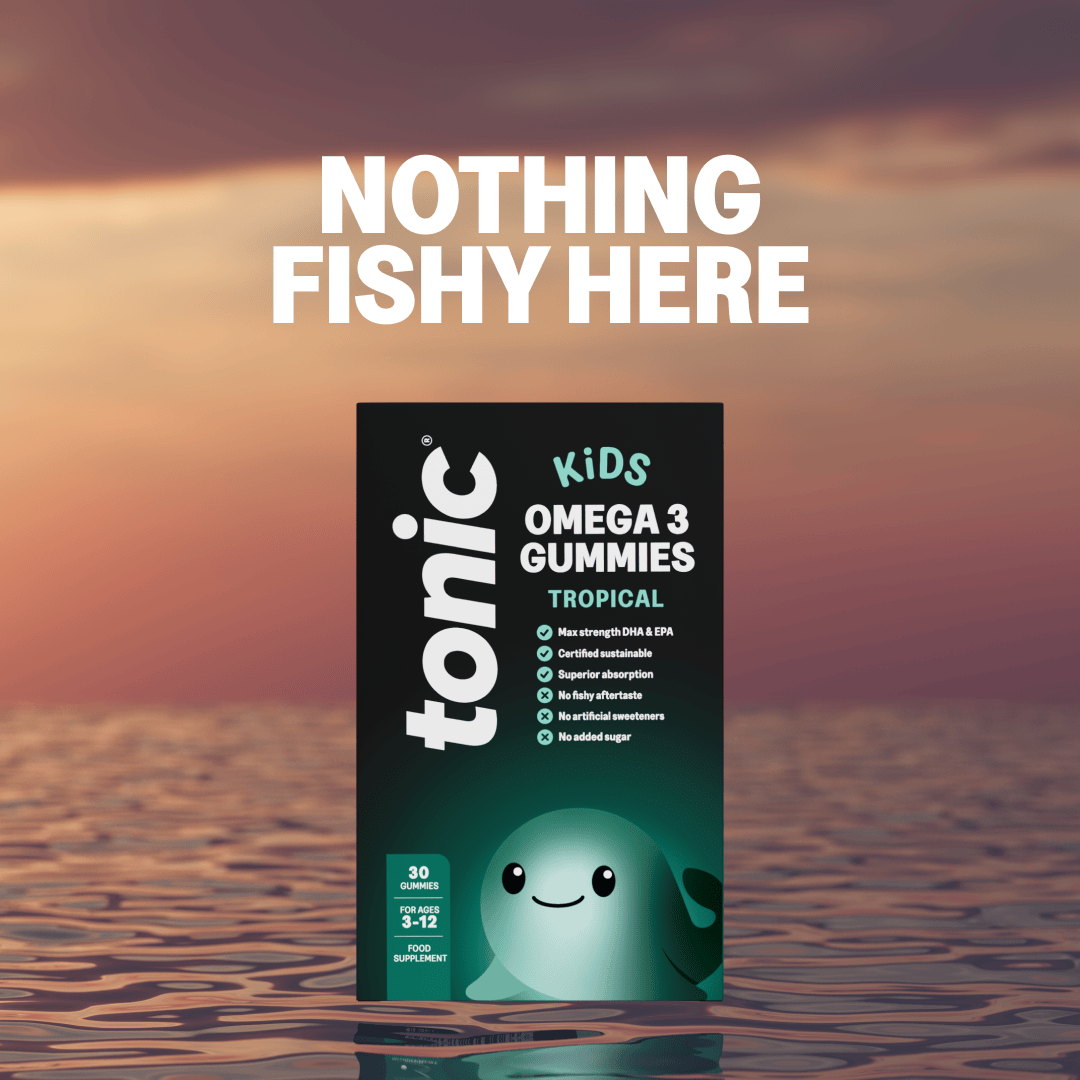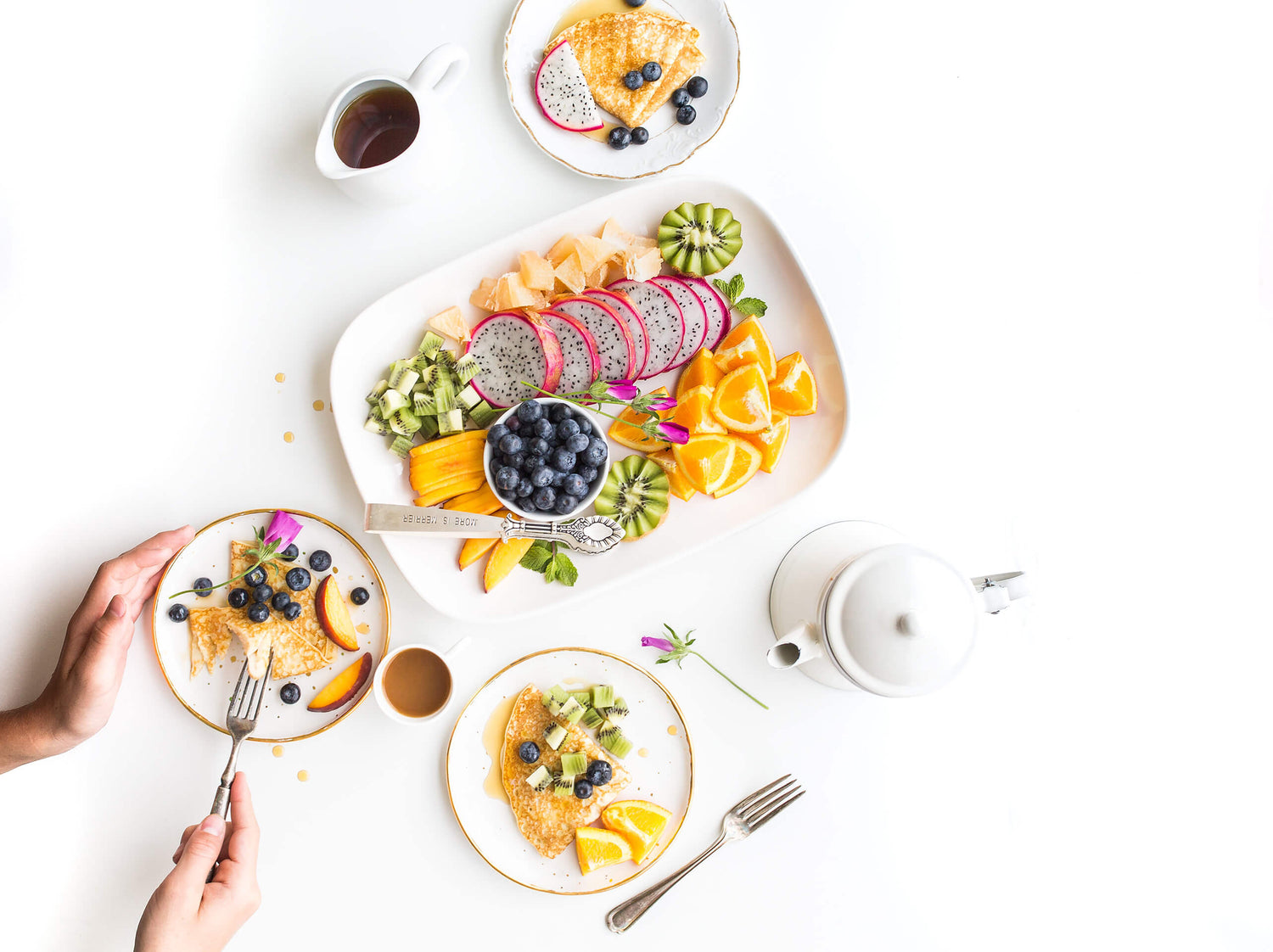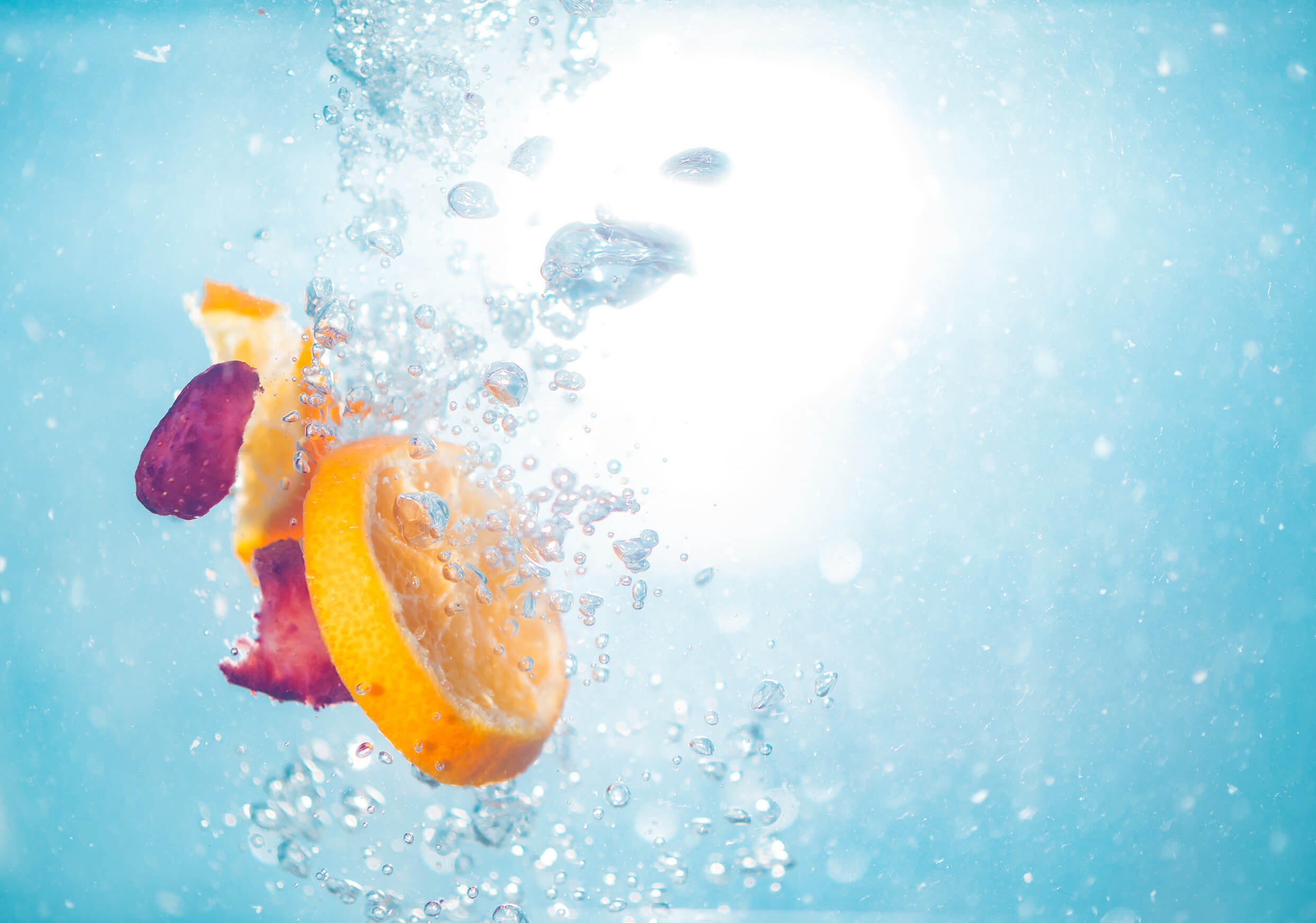We’re one of the few mammals (aside from guinea pigs, primates and fruit bats) that can’t make our own vitamin C. And when we eat it in our food, the body finds it difficult to store it. That’s because it’s a water-soluble vitamin, which is less stable versus the fat-soluble vitamins A, E, D and K that are stored for longer periods of time in our fat cells.
Our need for vitamin C can also change dramatically depending on what life is throwing at us. The more stressed we are the higher the amount needed (1), and if our immune system is working hard to ward off an infection or virus then our need is intensified (2). You can see this in animal research – goats were shown to synthesise up to 13x their normal levels of vitamin C when dealing with health challenges (3). Although we don’t have the inbuilt mechanism to make our own, we do have a very large brain to help us optimise and supplement our diet when our body needs more!
The current RNI for vitamin C is 40mg, which seems quite a small amount when you think that with just 10mg a day or less you start to develop scurvy... RNIs (Recommended Nutrient Intakes) are set to make sure that 97.5% of the population needs are met in order to ward off deficiency disease, so they can often be on the low side.
What’s the optimum level we should be aiming for?
Vitamin C is one of the most well researched nutrients and data suggests that a daily dose far higher than the current RNI is beneficial to health, although there is much debate as to what that level should be. The FSA Expert Group on Vitamins and Minerals in 2003 stated that “there is insufficient data to set a Safe Upper Level for vitamin C”, suggesting that the vitamin is safe at much higher levels to the current RNI (4).
Food is always the first port of call. As the saying goes, “there’s no such thing as a vitamin C tree” – the premise being that whole food is greater than the sum of its individual parts. Foods rich in vitamin C will also be rich in other nutrients too, along with gut-nourishing gentle fibre, which is often low in our diet. (Vitamin C is very unstable and is often lost in cooking, so always remember to steam your greens rather than boil so nothing is lost in the water.) But food might not be enough if the body is in need of higher requirements due to health challenges or stress load.
The latest science on supplementation
When it comes to supplementation, the use of vitamin C has been the subject of much debate. A recent study published in 2020 recommends that supplementing above the RNIs for both vitamin C and D is warranted within upper safety limits (5) to help reduce infection and disease burden. The ascorbic acid form is one of the most bioavailable; it’s well absorbed by the body, similar to how vitamin C from food is absorbed (5). It’s also well known that vitamin C helps to increase iron absorption, so those with anaemia may benefit from an increase in vitamin C intake too (6).Nature is smart in enabling mammals who can make their own to up their dosage during a health crisis, and it makes sense that faced with a health challenge we should too!
- https://efsa.onlinelibrary.wiley.com/doi/epdf/10.2903/j.efsa.2009.1226
- https://pubmed.ncbi.nlm.nih.gov/29099763/
- Levy, Thomas E. “Primal Panacea.” Medfox Publishing. (2011). 53-54. Print
- https://cot.food.gov.uk/committee/committee-on-toxicity/cotreports/cotjointreps/evmreport
- https://pubmed.ncbi.nlm.nih.gov/32340216/
- https://pubmed.ncbi.nlm.nih.gov/30666502/






1 comment
Sophie Neidig
Dear tonichealth.co owner, You always provide great information and insights.
Leave a comment
All comments are moderated before being published.
This site is protected by hCaptcha and the hCaptcha Privacy Policy and Terms of Service apply.